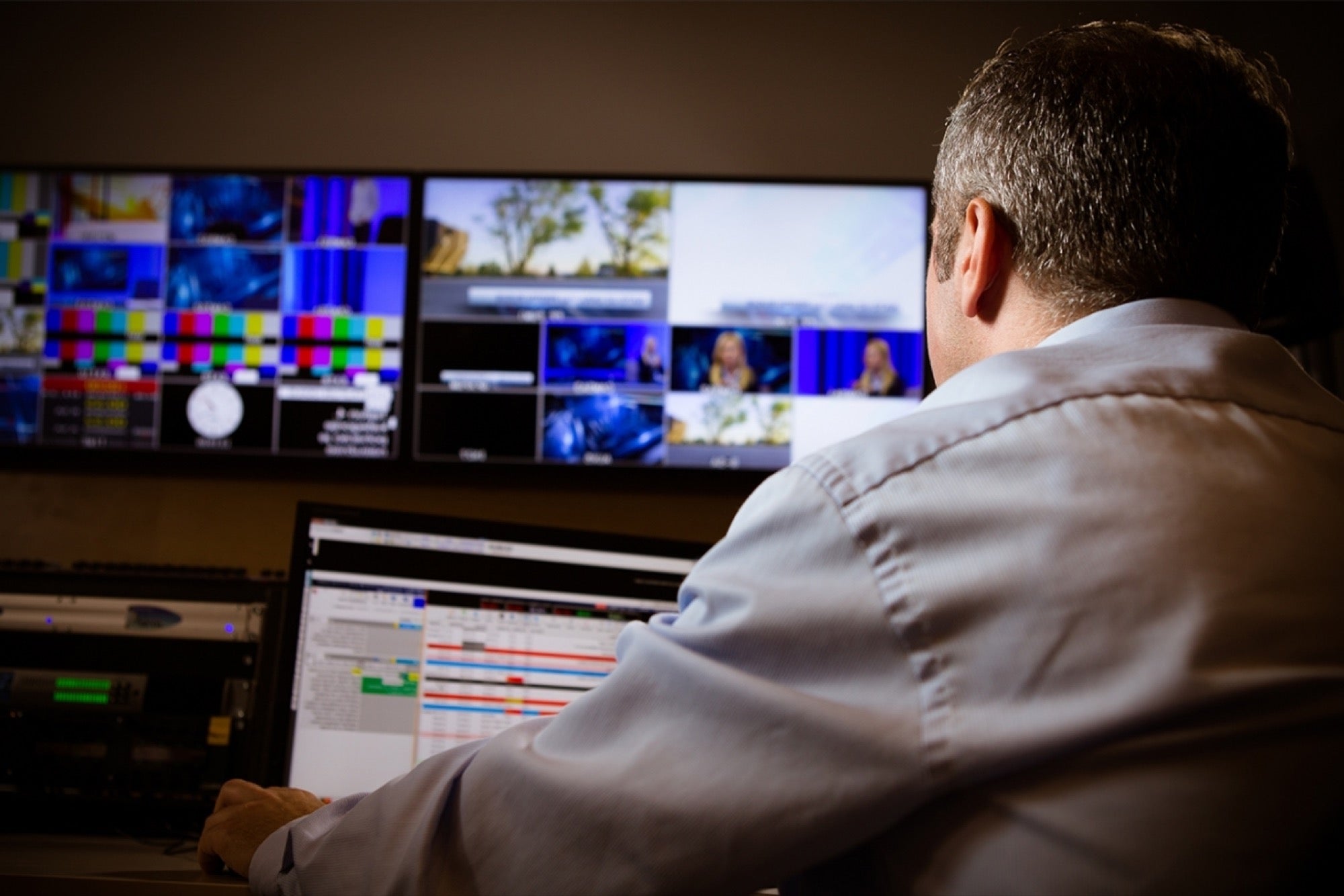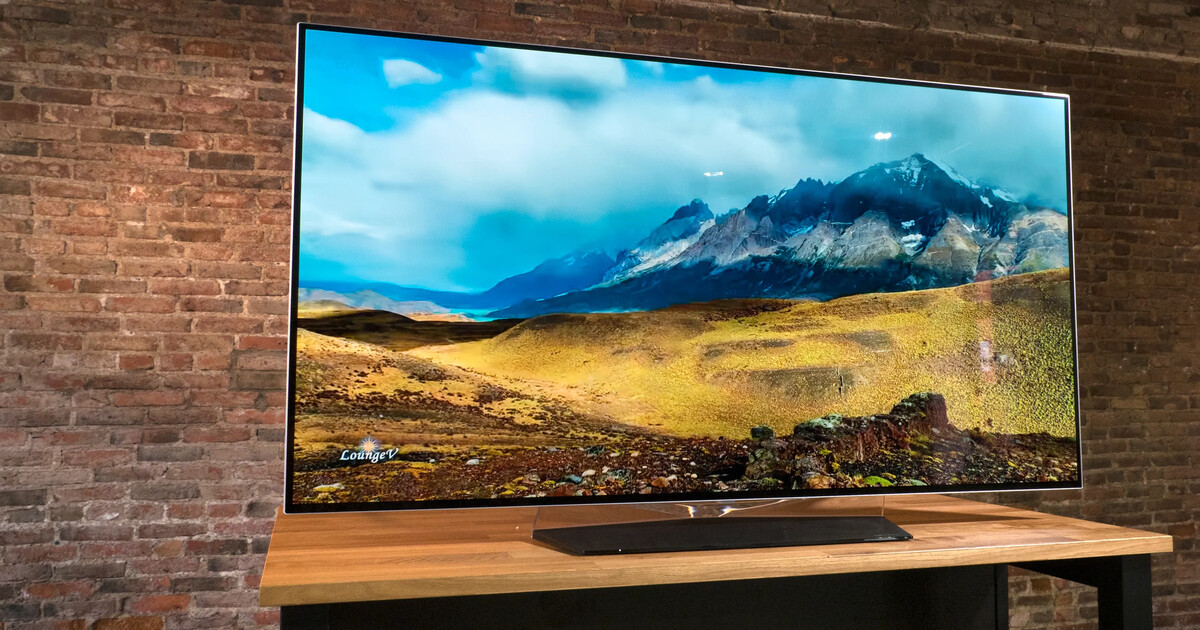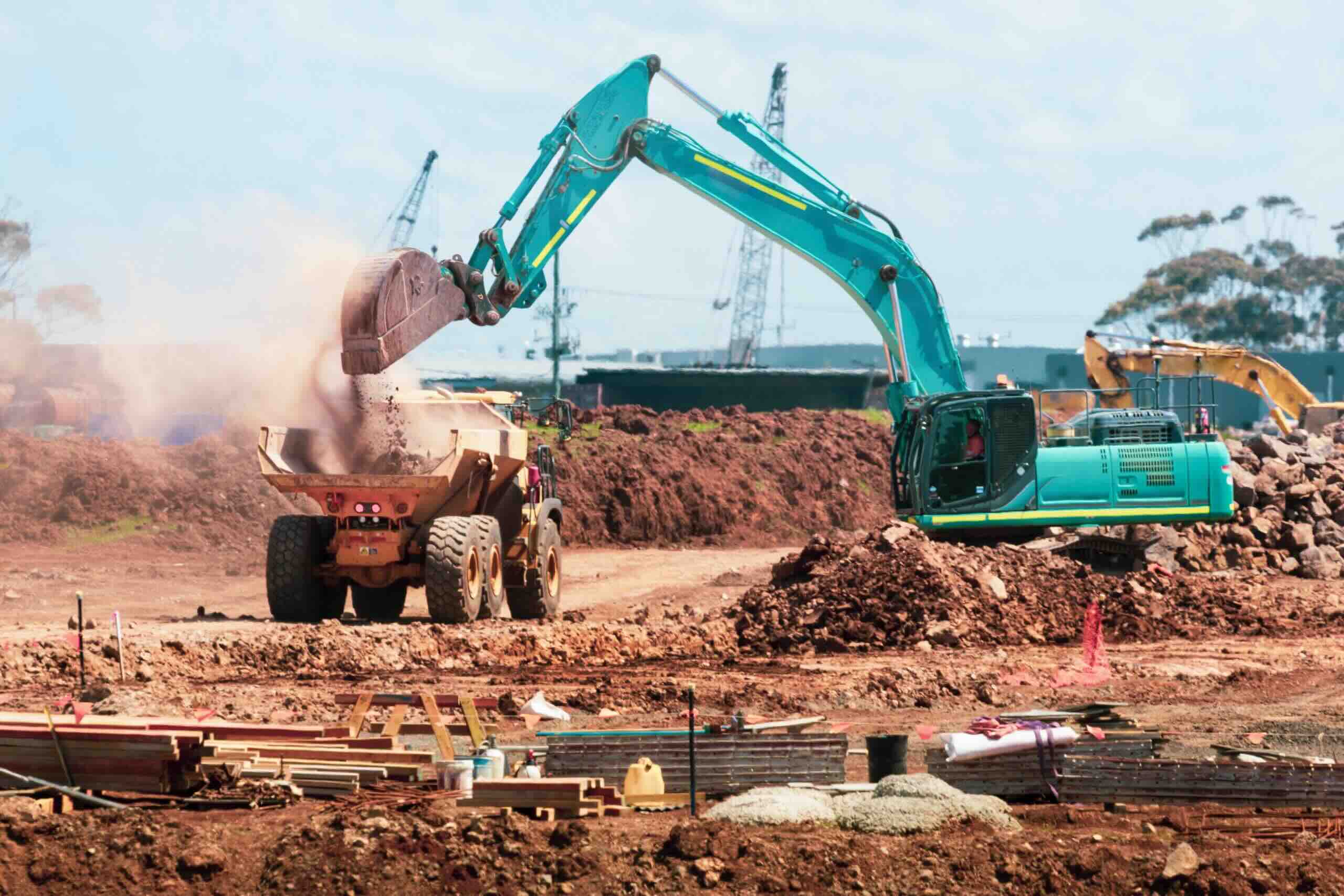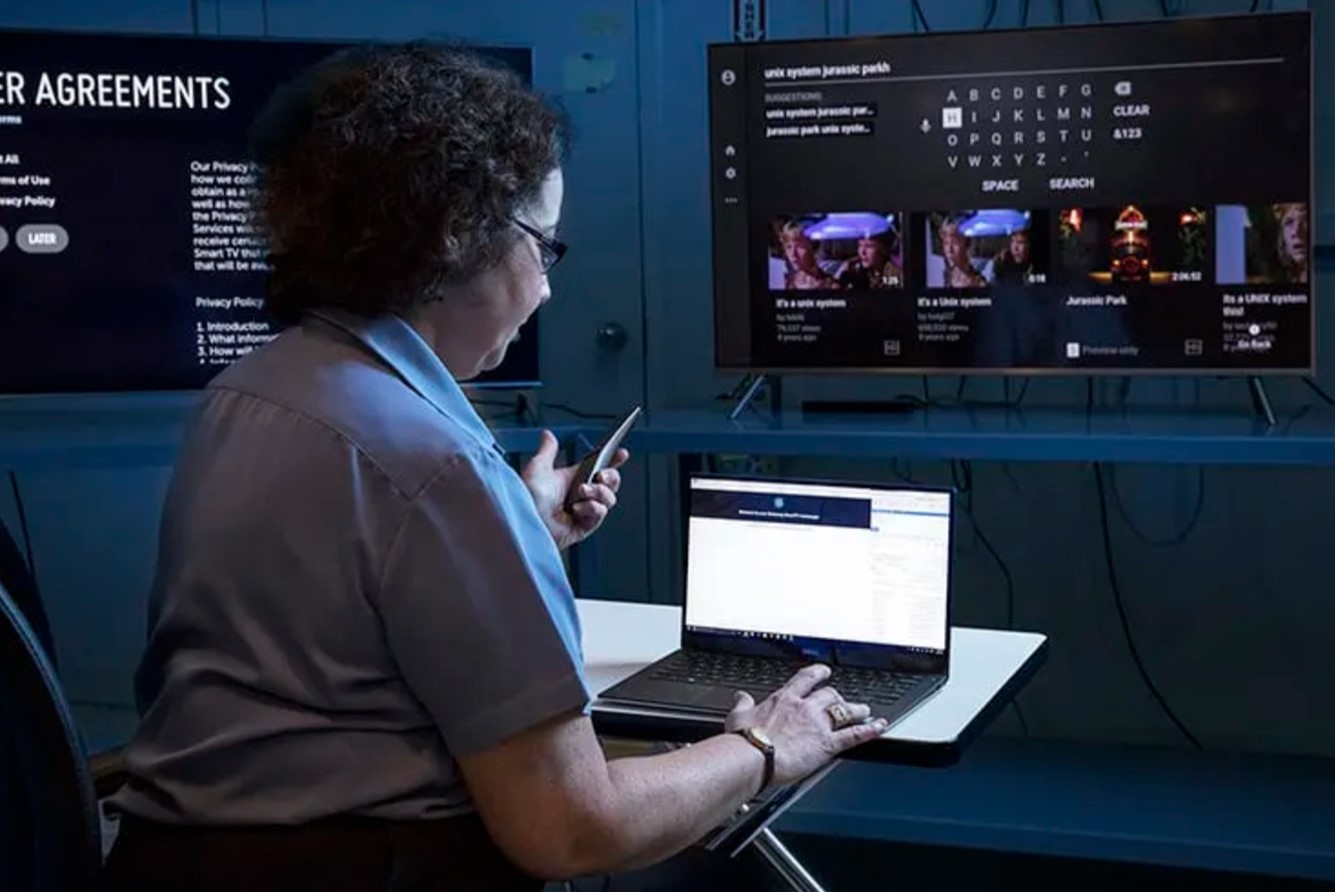Home>Technology>Home Entertainment Systems>What Does A Television Producer Do?


Home Entertainment Systems
What Does A Television Producer Do?
Modified: January 9, 2024
Discover the role of a television producer and their impact on home entertainment systems. Learn about their responsibilities and the creative process.
(Many of the links in this article redirect to a specific reviewed product. Your purchase of these products through affiliate links helps to generate commission for Storables.com, at no extra cost. Learn more)
**
Introduction
**
Television is a powerful medium that entertains, informs, and influences audiences worldwide. Behind every successful television show, there is a skilled and dedicated professional orchestrating the production process: the television producer. This role is instrumental in bringing captivating stories, news, and entertainment into our living rooms, shaping our viewing experiences and sparking our imaginations.
Television producers are the masterminds behind the scenes, overseeing every aspect of a production from conception to completion. Their ability to juggle creative vision, logistical coordination, and budgetary constraints is essential to the success of any television program. In this article, we will delve into the multifaceted world of television production, exploring the responsibilities, skills, working environment, and prospects of this dynamic and rewarding career.
Join me as we uncover the fascinating realm of television production and gain insight into the pivotal role of a television producer.
**
Key Takeaways:
- Television producers are the creative architects behind captivating shows, managing budgets, coordinating teams, and solving challenges to bring compelling stories to life.
- With strong leadership, creativity, and adaptability, television producers play a pivotal role in shaping the ever-evolving world of television, offering promising career opportunities in a dynamic and rewarding industry.
Responsibilities of a Television Producer
**
Television producers shoulder a diverse array of responsibilities, wielding their expertise to steer a production from its conceptual stage to its broadcast. Their pivotal role encompasses creative, logistical, and managerial duties, making them the linchpin of the entire production process. Here are the key responsibilities of a television producer:
-
Conceptualization and Development: A television producer is often involved in the initial stages of a project, conceptualizing ideas, and developing them into viable television programs. This may involve brainstorming concepts, conducting market research, and collaborating with writers and directors to shape the show's narrative and format.
-
Budgeting and Financial Management: Producers are tasked with creating and managing the budget for a production, ensuring that financial resources are allocated efficiently. This involves negotiating contracts, securing funding, and overseeing expenditures to maintain fiscal discipline while maximizing the production's quality.
-
Project Oversight and Coordination: From casting and location scouting to scheduling and post-production, television producers coordinate the myriad elements of a production. They liaise with various departments, including art direction, cinematography, and editing, to ensure seamless collaboration and adherence to the production timeline.
-
Creative Direction and Decision-Making: Television producers provide creative leadership, offering input on script development, visual aesthetics, and overall artistic direction. Their decisions influence casting choices, storytelling techniques, and the overall tone and style of the program.
-
Risk Management and Troubleshooting: Producers are adept at anticipating and mitigating potential challenges that may arise during production. Whether addressing on-set conflicts, technical issues, or unforeseen obstacles, they must navigate complexities and make swift, informed decisions to keep the production on track.
-
Compliance and Regulatory Oversight: Television producers navigate the complex landscape of industry regulations and standards, ensuring that their productions adhere to legal and ethical guidelines. This includes securing necessary permits, addressing content ratings, and upholding industry best practices.
-
Promotion and Distribution Strategies: Producers play a pivotal role in devising marketing and distribution strategies to maximize the reach and impact of their productions. They collaborate with networks, streaming platforms, and marketing teams to promote the show and engage audiences effectively.
In essence, television producers are the architects of compelling and impactful television content, wielding their expertise to orchestrate the intricate symphony of production with finesse and vision. Their multifaceted responsibilities underscore the indispensable role they play in shaping the television landscape and captivating audiences worldwide.
**
Skills and Qualifications
**
Becoming a successful television producer requires a unique blend of skills, knowledge, and personal attributes that enable individuals to navigate the complexities of the industry and spearhead exceptional productions. Here are the key skills and qualifications essential for aspiring television producers:
-
Creative Vision and Storytelling Acumen: A television producer must possess a keen creative vision, with the ability to conceptualize compelling narratives and translate them into captivating visual storytelling. This entails a deep understanding of audience preferences, genre dynamics, and evolving trends in television content.
-
Exceptional Communication and Leadership: Effective communication skills are paramount for television producers, as they must collaborate with diverse teams, convey their creative vision, and negotiate deals with talent and industry stakeholders. Strong leadership abilities are also vital, as producers must inspire and guide their teams through the challenges of production.
-
Strategic Planning and Decision-Making: Producers must exhibit strategic acumen, adeptly planning production schedules, resource allocation, and marketing strategies. Decisiveness and the ability to make informed, timely decisions are crucial in navigating the dynamic and fast-paced nature of television production.
-
Financial Management and Budgeting: A solid grasp of financial principles, budgeting expertise, and negotiation skills are essential for managing the financial aspects of television production. Producers must optimize resources, negotiate contracts, and ensure that productions remain within budgetary constraints.
-
Adaptability and Problem-Solving: The television industry is inherently unpredictable, requiring producers to exhibit adaptability and resourcefulness in addressing unforeseen challenges. The ability to think on their feet, troubleshoot effectively, and innovate in the face of obstacles is invaluable for success in this dynamic field.
-
Industry Knowledge and Networking: A thorough understanding of the television industry, including market trends, distribution platforms, and audience demographics, is crucial for producers. Building and leveraging professional networks within the industry can open doors to opportunities and collaborations, enhancing a producer’s career trajectory.
-
Educational Background and Experience: While formal education in film, television production, or related fields can provide a solid foundation, practical experience is equally vital. Many successful producers have honed their skills through hands-on experience, internships, and mentorship within the industry.
These skills and qualifications form the bedrock of a successful career in television production, empowering individuals to navigate the multifaceted demands of the industry and deliver exceptional content that resonates with audiences.
**
A television producer is responsible for overseeing the production of a TV show. They manage the budget, schedule, and creative aspects of the show, working closely with the director and other crew members to ensure everything runs smoothly.
Working Environment
**
The working environment of a television producer is a dynamic and multifaceted landscape that demands adaptability, creativity, and resilience. From bustling studio lots to on-location shoots, producers immerse themselves in diverse settings as they bring television productions to life. Here’s a glimpse into the working environment of television producers:
-
Studio Settings: Many television producers operate within the controlled environment of studio lots, where soundstages, production offices, and post-production facilities converge to facilitate the creation of diverse programming. These settings offer a hub for collaboration, creativity, and technical innovation, providing producers with the infrastructure to orchestrate their productions.
-
On-Location Productions: Television producers often find themselves on the move, overseeing productions in real-world settings ranging from urban streets and rural landscapes to international locales. This dynamic aspect of the job allows producers to infuse authenticity and diversity into their productions, albeit with the logistical complexities of remote operations.
-
Collaborative Workspaces: The nature of television production fosters collaboration among diverse creative and technical professionals, from writers and directors to cinematographers, set designers, and post-production teams. Producers navigate collaborative workspaces, fostering synergy among these teams to realize their creative vision and ensure the seamless execution of production plans.
-
Fast-Paced Production Cycles: The working environment of television producers is characterized by fast-paced production cycles, with tight schedules, deadlines, and the need for agile decision-making. This demands a high degree of adaptability and the ability to thrive in high-pressure situations, as producers navigate the ever-evolving demands of the industry.
-
Industry Events and Networking: Television producers engage in industry events, film festivals, and networking opportunities to foster professional relationships, explore new collaborations, and stay abreast of industry trends. These engagements provide valuable insights, potential partnerships, and avenues for career advancement within the dynamic landscape of television production.
The working environment of a television producer is a captivating fusion of creativity, logistics, and artistic expression, where the convergence of diverse talents and the pulse of the industry propel the realization of compelling television content. This dynamic environment demands a blend of creative vision, strategic acumen, and adaptability, shaping the experiences and achievements of television producers as they navigate the ever-evolving world of television production.
**
Salary and Job Outlook
**
The salary and job outlook for television producers are influenced by various factors, including experience, location, industry trends, and the scope of the productions they oversee. While the compensation can vary, television producers often command competitive salaries commensurate with their expertise and the scale of their projects.
In the United States, the median annual wage for producers and directors was $74,420 as of May 2020, according to the U.S. Bureau of Labor Statistics. However, it’s important to note that salaries can significantly differ based on the specific role, level of experience, and the geographical location of the production.
Job outlook for television producers is influenced by the evolving landscape of media consumption and production. With the proliferation of streaming platforms, digital content, and the global demand for diverse programming, the need for skilled television producers remains robust. This presents opportunities for producers to engage in a wide spectrum of projects, ranging from traditional broadcast television to streaming-exclusive content and digital series.
As the industry continues to embrace innovative formats, technologies, and storytelling approaches, television producers with a penchant for creative adaptation and strategic foresight are poised to thrive. The ability to navigate the convergence of traditional and digital media, capitalize on emerging trends, and engage diverse audiences positions skilled producers at the forefront of the evolving television landscape.
Moreover, the global nature of television production offers avenues for international collaborations, co-productions, and cross-cultural storytelling, expanding the horizons for producers to engage in impactful and diverse projects on a global scale.
While the television production landscape presents its share of challenges, the demand for compelling and resonant content ensures that skilled television producers will continue to play a pivotal role in shaping the future of television programming, offering a promising job outlook for those passionate about the art and craft of television production.
**
Conclusion
**
The role of a television producer is an intricate tapestry of creativity, leadership, and strategic prowess, weaving together the diverse elements of television production to craft compelling and impactful content. From the conceptualization of ideas to the realization of captivating narratives, television producers are the driving force behind the shows that captivate audiences across the globe.
As we’ve explored the multifaceted responsibilities, dynamic working environment, and promising job outlook for television producers, it’s evident that this career path offers a rich tapestry of opportunities for those with a passion for storytelling, innovation, and the ever-evolving world of television.
Television producers stand at the nexus of artistic vision and logistical orchestration, leveraging their skills to navigate the complexities of production while shaping the cultural landscape of television programming. Their ability to adapt to industry trends, engage diverse audiences, and collaborate with talented professionals underscores the indispensable role they play in the ever-evolving world of television production.
For aspiring television producers, the journey is one of continual learning, creative exploration, and the pursuit of excellence. It is a career that demands resilience, vision, and a deep-seated passion for the art of storytelling. As the television industry continues to evolve, embracing new technologies, platforms, and narrative forms, the role of the television producer remains pivotal in bringing forth innovative, thought-provoking, and entertaining content that resonates with audiences of all backgrounds.
In conclusion, the world of television production is a dynamic and rewarding realm, offering a canvas for visionary storytellers, strategic leaders, and creative trailblazers to leave an indelible mark on the cultural tapestry of television. As we celebrate the artistry and impact of television programming, we recognize the invaluable contributions of television producers in shaping the narratives that enrich and inspire audiences worldwide.
Frequently Asked Questions about What Does A Television Producer Do?
Was this page helpful?
At Storables.com, we guarantee accurate and reliable information. Our content, validated by Expert Board Contributors, is crafted following stringent Editorial Policies. We're committed to providing you with well-researched, expert-backed insights for all your informational needs.















0 thoughts on “What Does A Television Producer Do?”